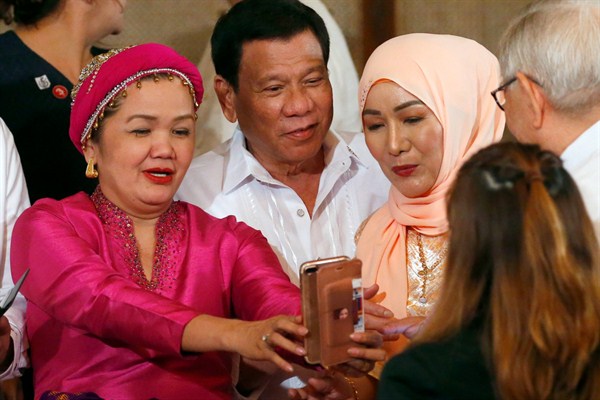On July 26, President Rodrigo Duterte signed a law paving the way for the long-awaited creation of a new self-governing region encompassing Muslim-majority areas on the Philippines’ conflict-wracked southern island of Mindanao. Known as the Bangsamoro Organic Law, it had been fiercely debated by lawmakers and rebel leaders amid political wrangling and ongoing violence. It aims to end a bloody separatist conflict that began in the early 1970s and has claimed thousands of civilian lives.
The bill’s passage is the culmination of four years of talks between the government and the 30,000-strong Moro Islamic Liberation Front, which has been fighting for greater autonomy in the south since its formation in 1981, when it broke away from the older Moro National Liberation Front. Both groups initially sought full independence through a lengthy guerrilla war in western Mindanao’s dense jungles, but in recent years they laid down their arms in pursuit of peace.
The proposed Bangsamoro autonomous region is set to have its own elected parliament, while promising Mindanao’s Moro Muslim inhabitants greater control of the region’s finances and access to revenues from natural resources. But will it set the region on the road to a sustainable and lasting peace? A series of roadblocks lie ahead. The new region must still be given the final seal of approval in a public vote later this year, while the impending transition and implementation period is set to run until 2022.

